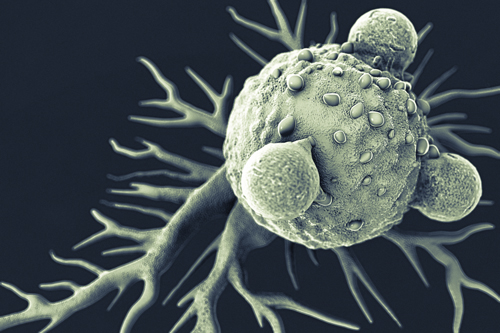T-Cell Receptor Therapy: The Next Generation
T cells are one type of lymphocyte important for the immune system to function properly. As with CAR T-cell therapy effect on hematologic cancers, T-cell receptor (TCR) therapy is an immuno-oncology engineering feat with ongoing research to target a wide range of solid tumors.
For example, research is ongoing with cancer-specific proteins not expressed in normal, healthy cells, such as:
- Cancer testis antigens
- Viral antigens
- Neo-antigens
TCRs are proteins that allow T cells to “see” cancer targets on the cancer cell surface or inside the cancer cell. TCRs that are specific to a cancer can be isolated from the body and undergo a process to yield many engineered T cells that recognize and attack various types of solid and blood cancers. Like CAR T-cell therapy, TCR therapy yields tumor apoptosis and programmed cell death, can expand T-cells numbers, and results in circulation throughout the body to target distant cancer cells.
KITE-718: A T-Cell Receptor Therapy
In January 2017, Kite Pharma submitted an investigational new drug (IND) application with the FDA to initiate trials with KITE-718, their first T-cell therapy engineered to express T cell receptors. This trial, currently in Phase I, is designed to assess the safety and efficacy of KITE-718 on a broad range of solid tumors. Of note, Kite Pharma was acquired by Gilead Pharmaceuticals in August 2017.
KITE-718 T-cell receptors target MAGE A3/A6 antigen, commonly found in cancers such as:
MAGE A3 and MAGE A6 fragments are bound to Class II human leukocyte antigen (HLA) (DPB1 04:01), found in 50 to 70 percent of Caucasians.
Original work with MAGE A3/A6 was done by the National Cancer Institute where tumor regression was demonstrated in multiple different types of tumors and no off target toxicity was reported.
KITE-439: HPV Cancers
Human papillomavirus (HPV) is often thought of with cervical cancer, but it is also the foundation for many head and neck and anogenital cancers. HPV causes over 30,000 cancers per year in the U.S., with over 11,000 deaths.
According to the Centers for Disease Control and Prevention (CDC), cervical cancer is the most common HPV-associated cancer among women, and oropharyngeal cancers are the most common among men. HPV-16 is the most common strain found in these cancers.
KITE-439 is an investigational T-cell receptor (TCR) therapy in pre-IND phase and directed against HPV-16 E6 and E7 antigens for the treatment of HPV-linked cancers. Kite Pharma/Gilead and the National Cancer Institute are also collaborating on HPV cancer research. This novel TCR therapy is being evaluated as monotherapy and in combination with a checkpoint inhibitor in HPV-16 associated solid tumors, like cervical and head and neck cancers.
Learn More: Checkpoint Inhibitors & Advanced Cancers: A Healthcare Professional’s Guide



